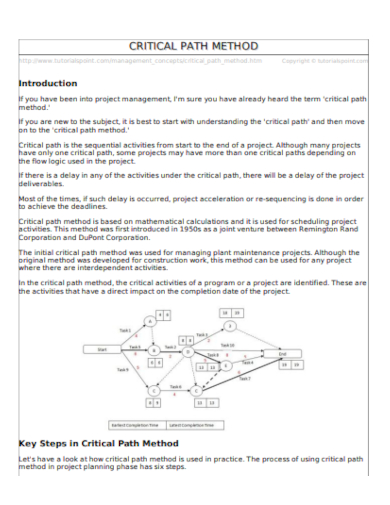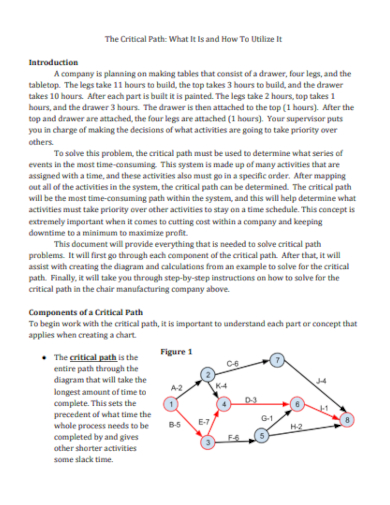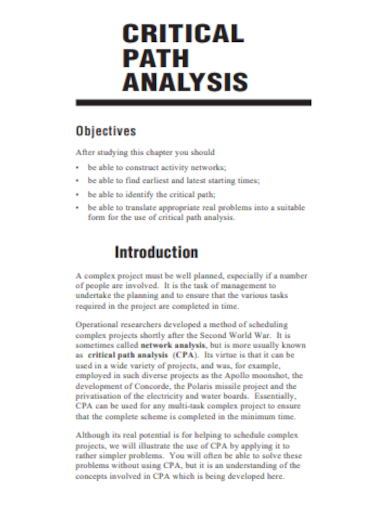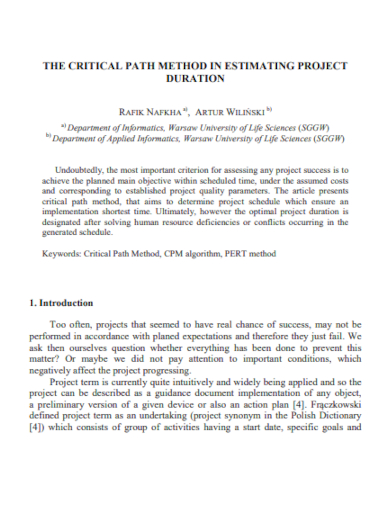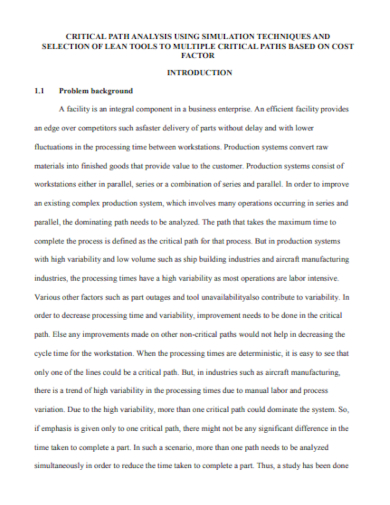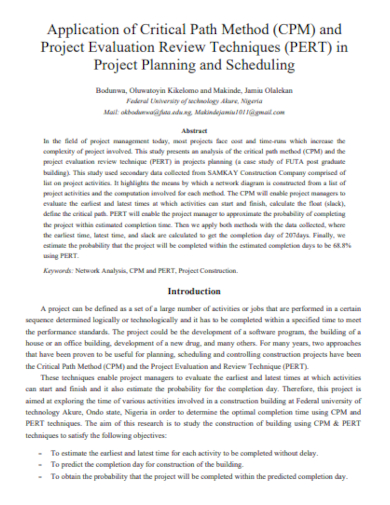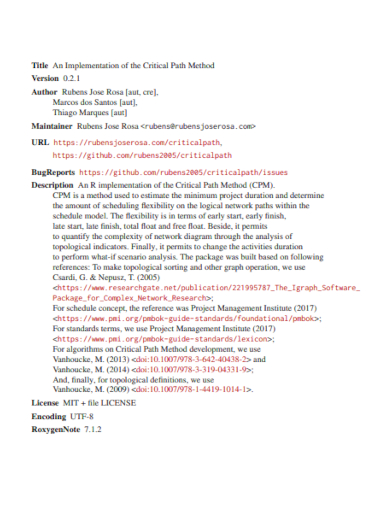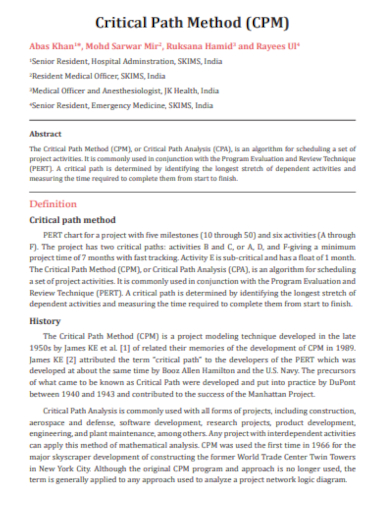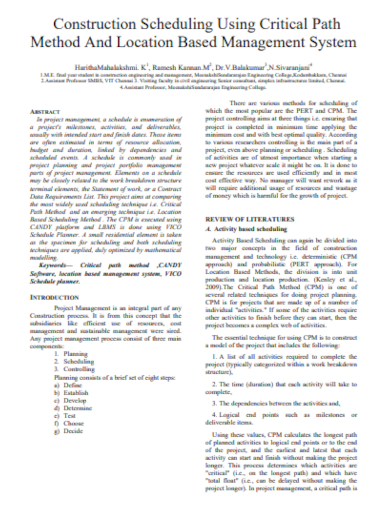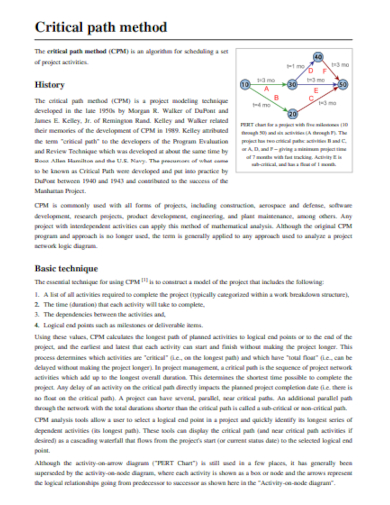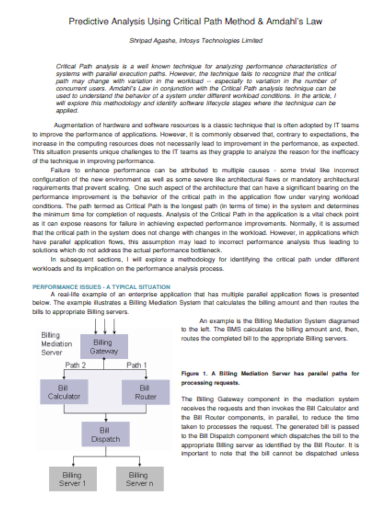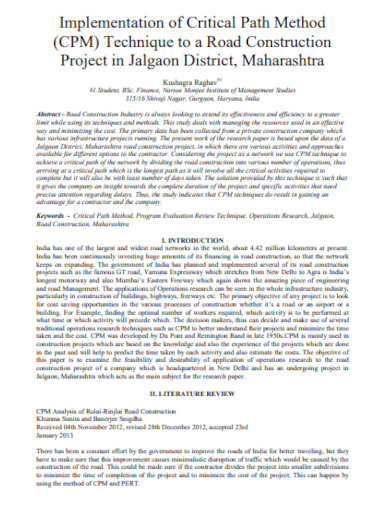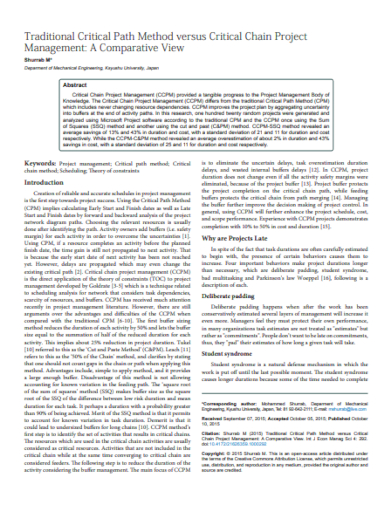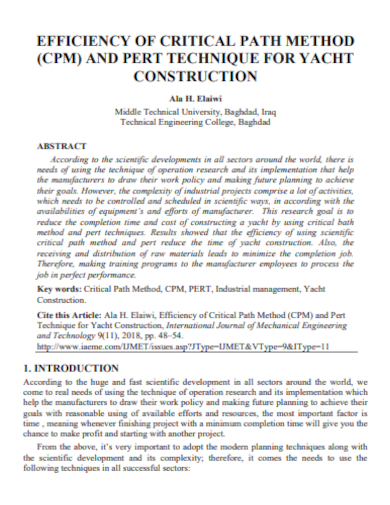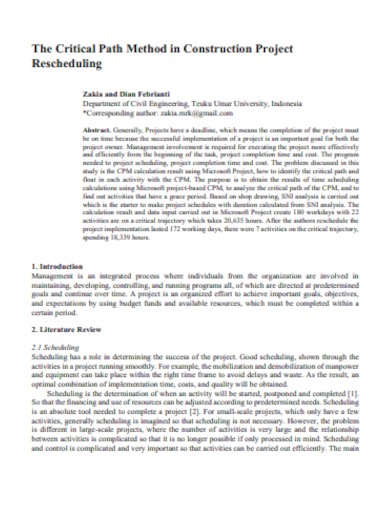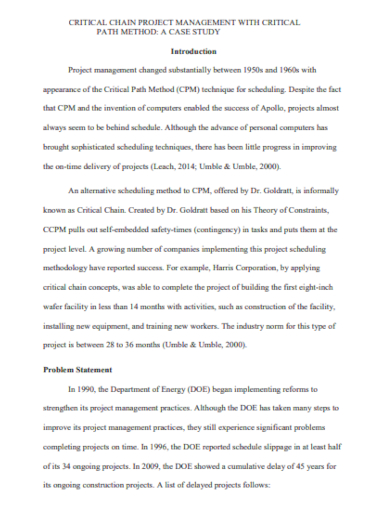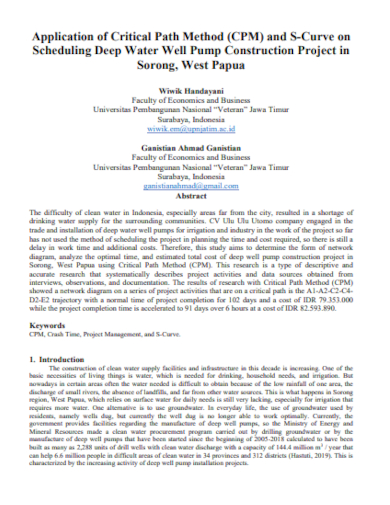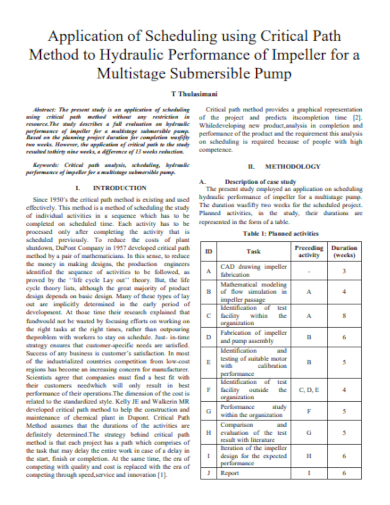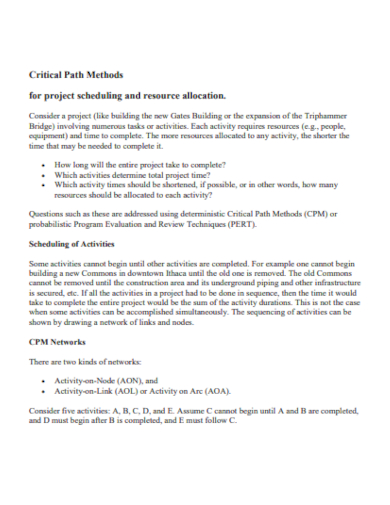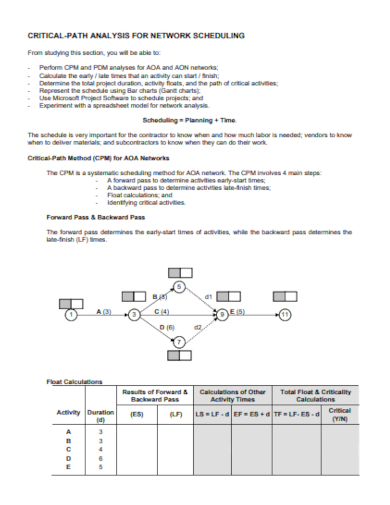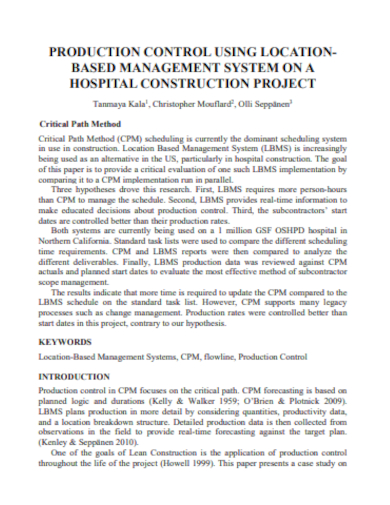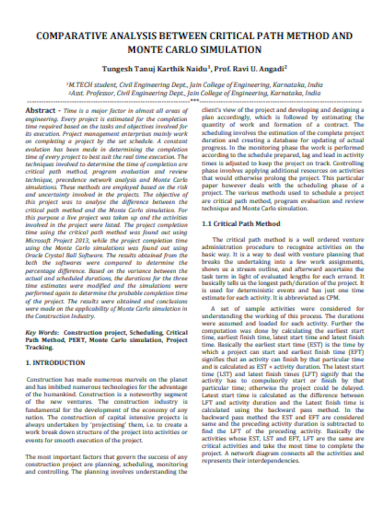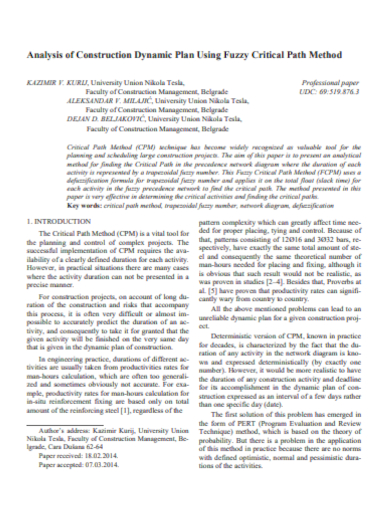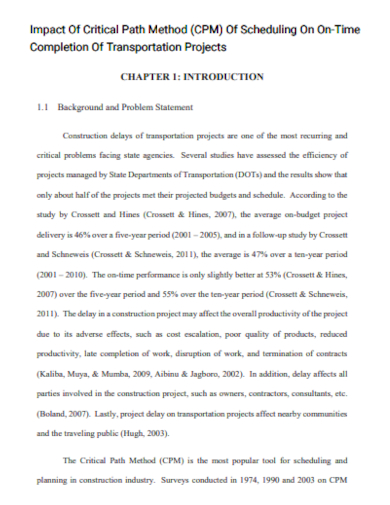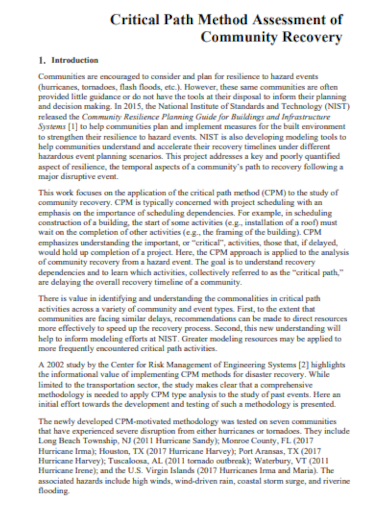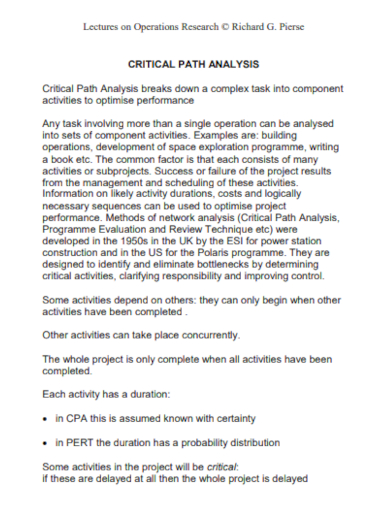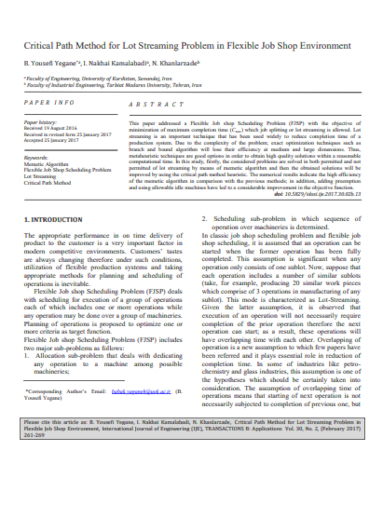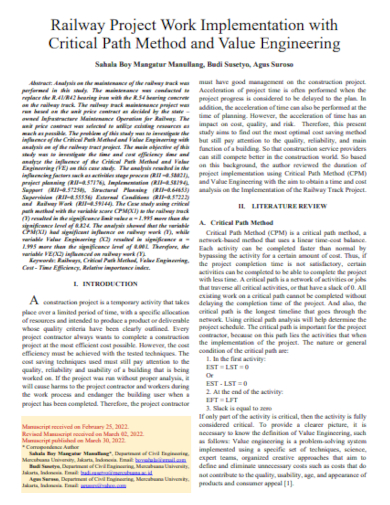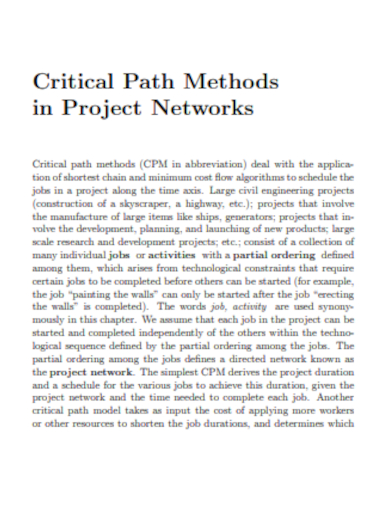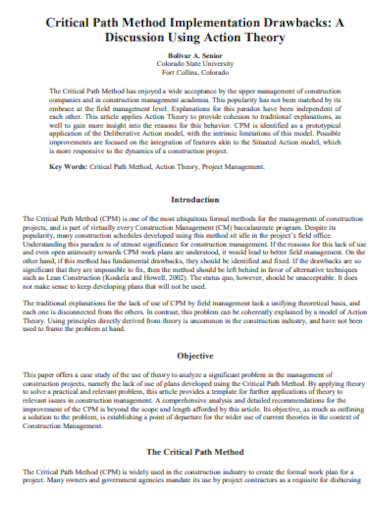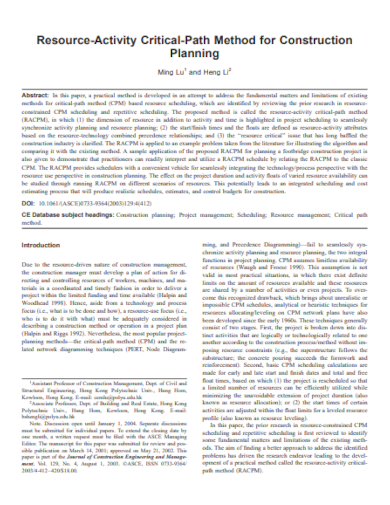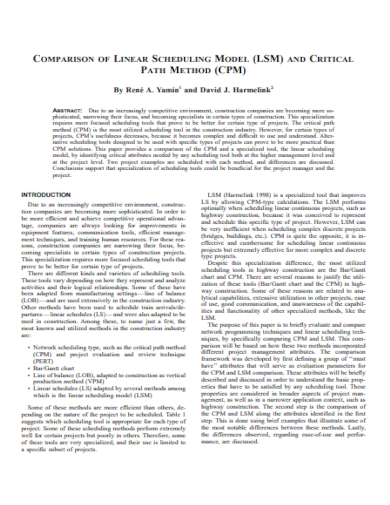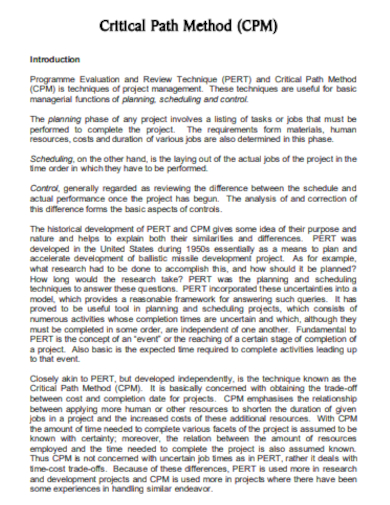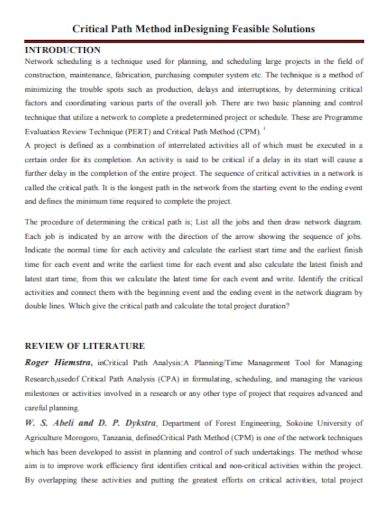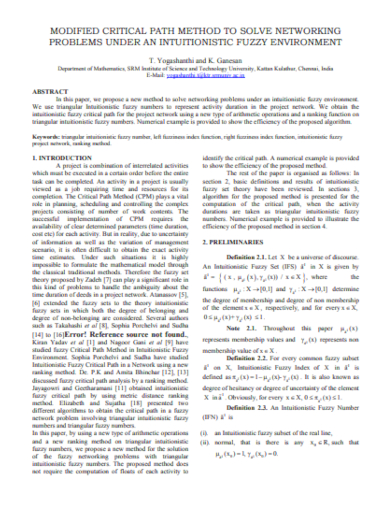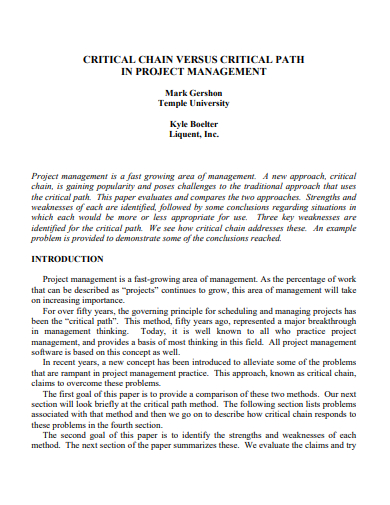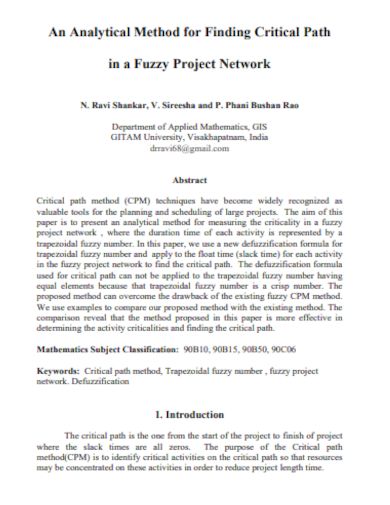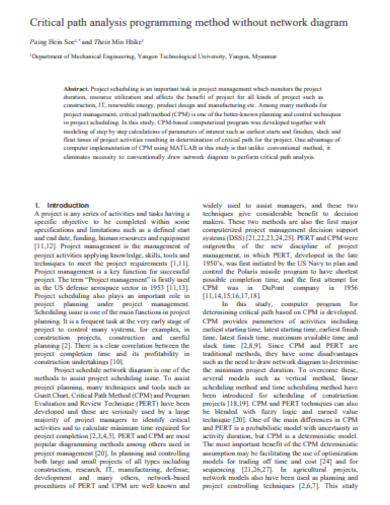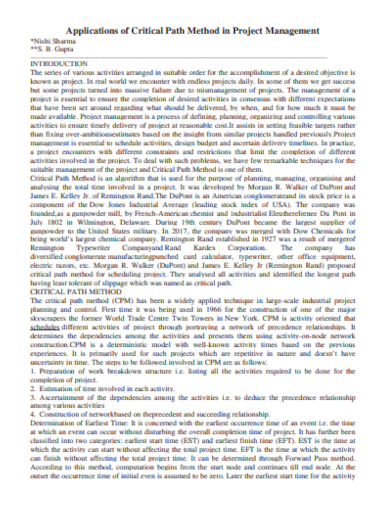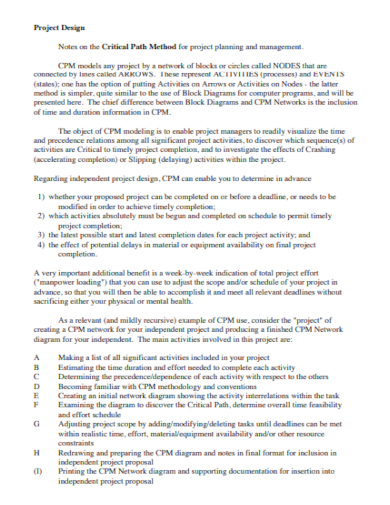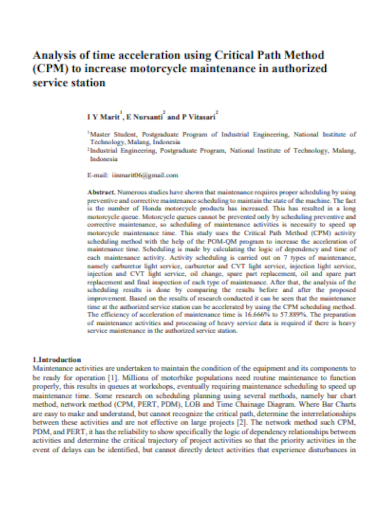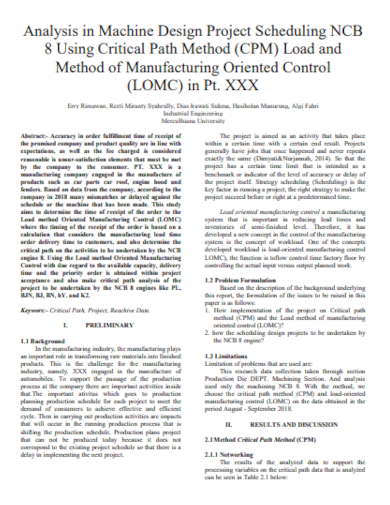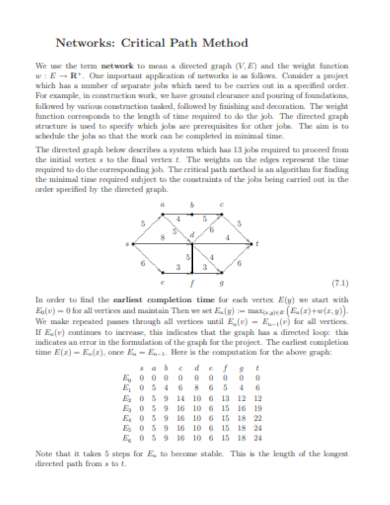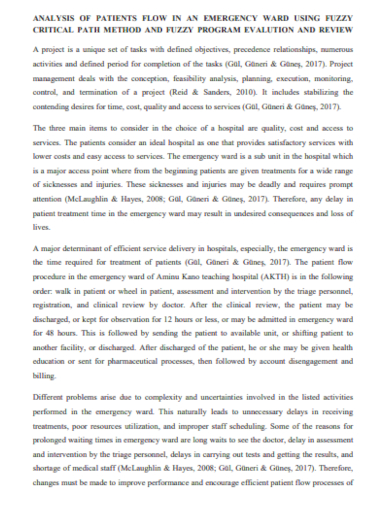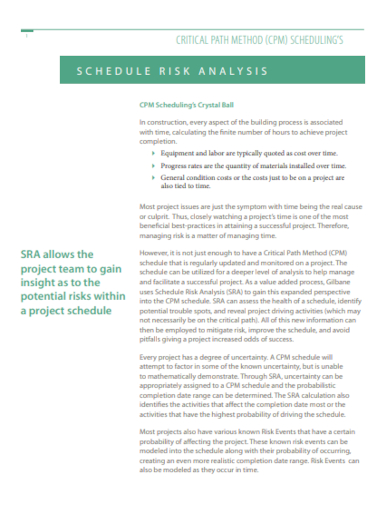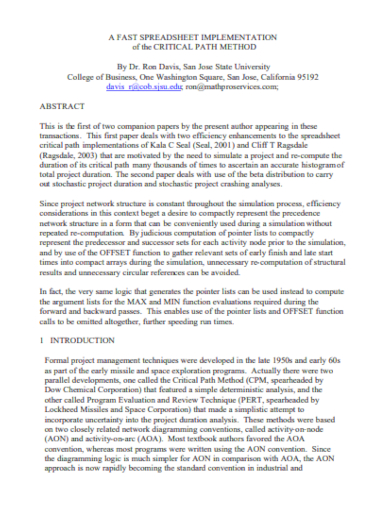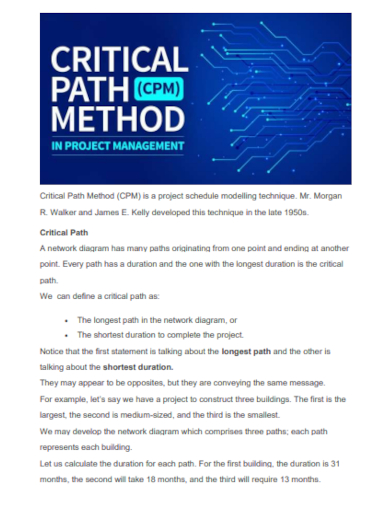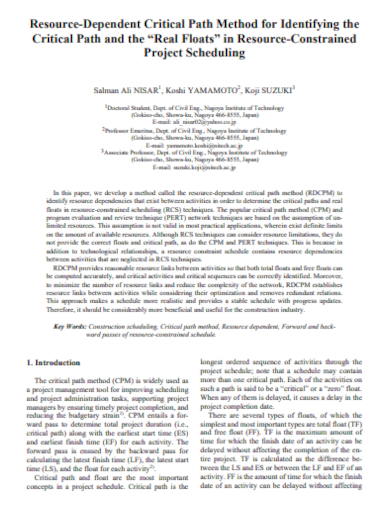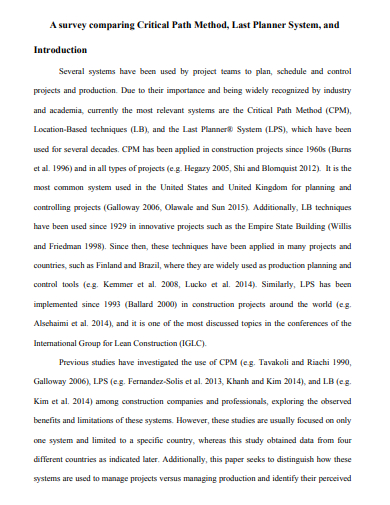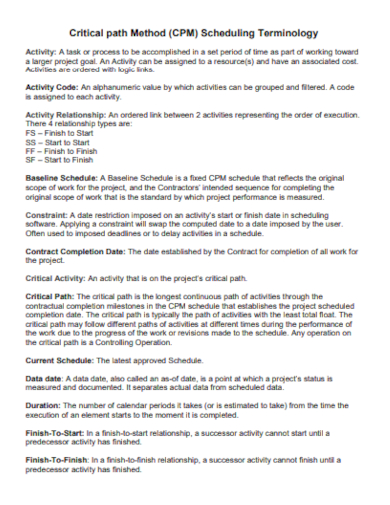A business project’s completion depends on its individual task lists, each of which must be completed in accordance with a predetermined project plan. It may sound easy, but if you don’t map out the work, the project scope can quickly spiral out of control, and you’ll find that your project has veered off course. When managing a project, it is essential to use the critical path method because it first identifies all of the tasks required to finish the project. It also determines which tasks must be completed on time, which tasks can be delayed if necessary, and how much float or slack you have.
50+ Critical Path Method Samples
1. Critical Path Method
2. Sample Critical Path Method
3. Critical Path Method Analysis
4. Project Critical Path Method
5. Critical Path Method Simulation Analysis
6. Application of Critical Path Method
7. Implementation of Critical Path Method
8. Standard Critical Path Method
9. Construction Critical Path Method
10. Basic Critical Path Method
11. Predictive Analysis Critical Path Method
12. Critical Path Method Technique
13. Traditional Critical Path Method Management
14. Critical Path Method for Yacht Construction
15. Critical Path Method for Construction Project
16. Critical Path Method Project Case Study
17. Application of Critical Path Method Project
18. Application of Scheduling Critical Path Method
19. Resources Critical Path Method
20. Critical Path Method Network Analysis
21. Production Control Critical Path Method
22. Comparative Analysis Critical Path Method
23. New Critical Path Method
24. Analysis of Construction Plan Critical Path Method
25. Impact of Critical Path Method
26. Critical Path Method Assessment
27. Operations Research Critical Path Method
28. Critical Problem Path Method
29. Project Work Implementation Critical Path Method
30. Project Network Critical Path Method
31. Action Theory Critical Path Method
32. Critical Path Method for Construction Planning
33. Critical Path Method Model
34. Program Evaluation Critical Path Method
35. Feasible Critical Path Method
36. Modified Critical Path Method
37. Critical Chain Path Method
38. Analytical Method for Critical Path
39. Critical Path Analysis Programming Method
40. Application of Critical Path Method Project Management
41. Critical Path Method Project Design
42. Analysis of Critical Path Method Service
43. Critical Path Method Machine Design Project
44. Network Critical Path Method
45. Analysis of Patient Critical Path Method
46. Schedule Risk Analysis Critical Path Method
47. Spreadsheet Implementation Critical Path Method
48. Formal Critical Path Method
49. Project Schedule Critical Path Method
50. Survey Planner System Critical Path Method
51. Critical path Method Scheduling Terminology
What is Critical Path Method?
The critical path method (CPM) is a technique that project managers use to develop a project schedule and the total duration of a project estimate. CPM stands for the critical path analysis method. The CPM method, also known as critical path analysis (CPA), involves using a network project diagram to graphically represent the sequences of tasks required to finish a project. This method’s other name is critical path management (CPM). When these task sequences or paths have been defined, you will calculate their durations to determine the critical way, ultimately deciding how long the project will take in its entirety.
How To Make a Critical Path Method?
Critical path methodology was first developed in the late 1950s, but it continues to be of critical significance to project managers in modern times. It visually represents the project activities, clearly presents the time required to complete tasks, and tracks activities to ensure you do not fall behind daily and weekly schedule. If you want to develop your critical path method, you can get started by reading the steps that are outlined below.
1. Specify Your Activity
You will need to use the work breakdown structure to determine each activity (or task) associated with the project. You should include only activities of a higher level on this list of activity specifications. The critical path analysis may become unmanageable and impossible to keep up to date if you use detailed activities.
2. Establish Activity Sequence
The successful completion of specific tasks will determine the continuation of others. It will be easier to choose the proper order of the activities if you first list their immediate predecessors. Ask yourself these three questions for each action on your list from step one to identify activities correctly and their precedence. For example, which task should happen before this task?; which tasks should be finished at the same time as this task?; and which tasks should happen right after this task?
3. Create a Network Diagram
You will then be able to draw the critical path analysis chart (CPA), also known as the network diagram, once you have determined the activities and the dependencies between them. The network diagram is a graphic representation of the order in which you should complete your activities and their dependencies. There are now software programs that can create this critical path diagram for you, whereas in the past, this diagram had to be hand drawn.
4. Determine Activity Completion
You are now tasked with estimating the time necessary to finish each activity. You can draw on previous experience or draw on the understanding of an experienced member of your team. If you are in charge of a less significant project, you will most likely quantify time in days. You may need to measure time in terms of weeks when you are working on a complicated project.
What does the critical path method mean, broken down into its simplest form?
The critical path method, also known as CPM, is a technique that identifies the tasks that are essential for the completion of a project and determines the scheduling flexibilities.
How exactly does one calculate the critical path?
The following is the formula that is used to determine the Early Start and Early Finish dates: Early Start of the activity = Early Finish of predecessor activity + 1. Early Finish of the activity = Activity duration + Early Start of activity – 1.
What exactly is an example of the critical path?
If you were building a house, you have several task sequences like those listed below: It takes a different amount of time and resources to complete each task. Building the walls and laying the roof takes significantly more time than putting in faucets and other fixtures.
Incorporating the critical path method into their diagrams is the most effective way for project managers to avoid making careless planning decisions. It is much simpler to picture the essential steps of a project when they are presented in the form of a diagram. This makes it much simpler for the project team to envision their tasks and organize them by the project requirements, which is very helpful for the managers. The primary purpose of this activity is to produce a visual representation of the entire project broken down into more manageable activities essential to completing the entire project.
Related Posts
Weekly Schedule Samples & Templates
Contractual Agreement Samples & Templates
FREE 9+ Amazing Sample Church Bulletin Templates in PSD | PDF
Sample Business Card Templates
Sample Cashier Job Descriptions
Questionnaire Samples
FREE 10+ Sample HR Resource Templates in PDF
FREE 10+ HR Consulting Business Plan Samples in MS Word | Google Docs | Pages | PDF
FREE 49+ Sample Job Descriptions in PDF | MS Word
FREE 16+ Nonprofit Budget Samples in PDF | MS Word | Excel | Google Docs | Google Sheets | Numbers | Pages
FREE 13+ Academic Calendar Templates in Google Docs | MS Word | Pages | PDF
FREE 10+ How to Create an Executive Summary Samples in Google Docs | MS Word | Pages | PDF
FREE 23+ Sample Event Calendar Templates in PDF | MS Word | Google Docs | Apple Pages
Company Profile Samples
FREE 10+ Leadership Report Samples [ Development, Training, Camp ]

